It’s All Connected
Why Wellness Needs An Even More Holistic Approach
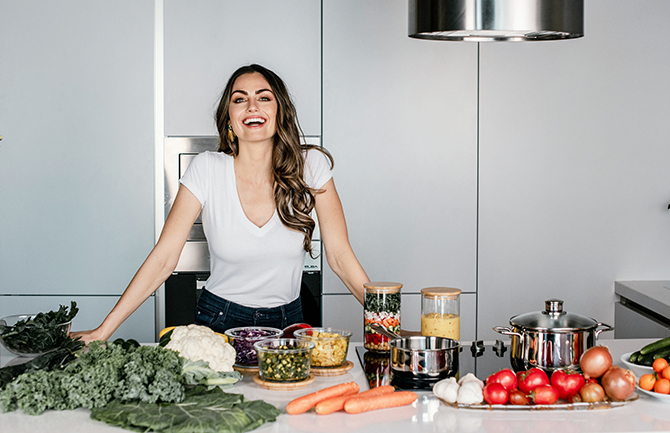
By Maria Marlowe
Do we think with our gut or our mind? Do we feel with our bodies or our soul? As much as Western thought likes to compartmentalize the different organs of the body into tidy systems (digestive, immune, cardiovascular, etc.), the truth is, it is all interconnected.
Maria Marlowe should know. The founder of Healthy by Marlowe, a digital platform for online science-backed, doctor-approved nutrition and cooking courses, realizes the importance of a healthy menu with meal plans that make healthy eating fun and easy. Like most of us, she grew up in New York on the Standard American Diet and was inspired to delve into the concept of food as medicine after developing many chronic health conditions in her late teens—including weight gain, acne, chronic digestive issues, and pre-cancerous cell changes. Unsatisfied with the advice, to “wait and see” what happens, she took matters into her own hands, changed her diet, and completely transformed her health.
Maria then went on to study integrative nutrition and plant-based cooking, hoping to help others understand the profound impact food and lifestyle have on our health. She opened her Integrative Nutrition Health Coaching practice in NYC in 2013 and has since coached hundreds of people to improve their health by improving their eating habits.
In 2017 she closed the physical location to focus solely on online programming. She is the author of The Real Food Grocery Guide—touted as “the most practical guide to healthy eating” by Dr. Dean Ornish—as well as hosts the top-rated Happier & Healthier podcast, in which she interviews top wellness experts.
We recently met with Maria (virtually, of course) who told us about the importance of wellness and how it is all interconnected. -The Editors
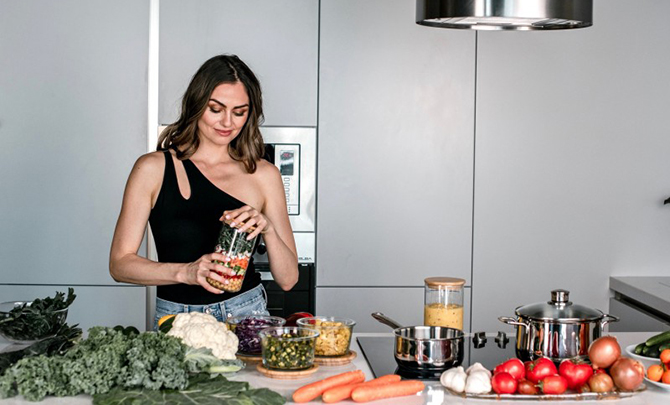

FOOD IS FUEL
As most of us realize, the foods we eat serve as the building blocks for our cells, our blood, and our organs. The fact that we must eat to survive gives us immense power over our health and well-being. The human body is a perpetual construction zone. Food affords us the ability to repair and rebuild. When we eat whole, unprocessed foods, such as vegetables, fruit, legumes, nuts, and organic animal products, it is as if we have the most capable construction crew inside us. When we choose a diet filled mostly with refined foods such as baked goods, sweets, soda, chips, and processed meats, it is as if all our construction workers lost their tools and fell asleep on the job—our diet influences everything, including our weight, mood, and risk for chronic disease and cancer.
COVID-19 has been a wake-up call to pay better attention to our health. After all, 94 percent of COVID-related deaths are in those with an underlying diet-related chronic disease, such as diabetes, hypertension, cardiovascular disease, and chronic inflammation. When we talk about wellness—especially in a post-COVID world—we must start with food.
For most people, plant-based paleo is a great starting point. It is primarily made of whole, plant-based foods, with a small amount of the highest quality organic meat and wild seafood. This diet is naturally low glycemic, high fiber, and anti-inflammatory. The number one tip I give people is to think of your plate as a pie chart and aim to fill 50 to 75 percent of it with vegetables.
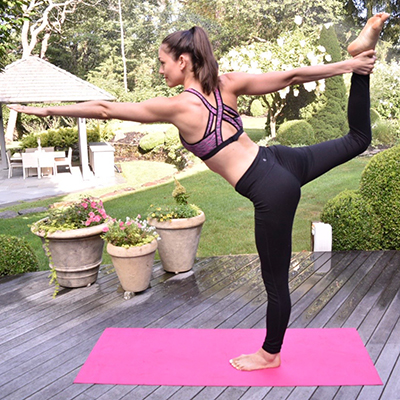
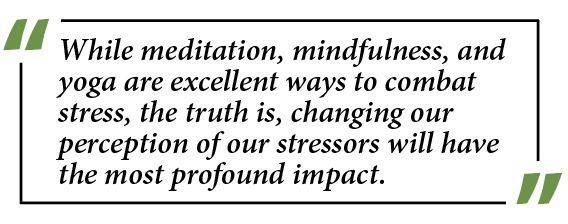
GET MOVING
As powerful as food is, though, it is not the magic bullet that will solve all health problems. We also need to incorporate physical fitness, stress-reduction, community, and happiness into the equation. Exercise boosts our mood, supports our immune system, lowers stress, balances blood sugar, and aids in elimination. Move your body at least 30 minutes a day, even if that means a walk. In quarantine days, I have taken to pacing my balcony while on phone calls to get my steps in.
Fitness apps and YouTube are overflowing with top trainers’ workouts that can be done in your living room with minimal or no equipment. Companies like Peleton are the future because they make working out at home a community activity, which makes it more fun.
It is known that stress reduction boosts our mood, decreases inflammation, improves our digestion, lowers high blood pressure, improves our cardiovascular health, and even improves our overall quality of life. While meditation, mindfulness, and yoga are excellent ways to combat stress, the truth is, changing our perception of our stressors will have the most profound impact. No event in and of itself is innately stressful; it is our perception of that stressor that makes it so.
Another factor in living a healthful life is having a tight-knit community—a circle of friends and family you can rely on is a critical but often overlooked aspect of wellness. Healthy relationships are cited as a primary factor of longevity in the world’s Blue Zones—the area where people regularly live past the age of 100. It is also a critical factor in Dr. Dean Ornish’s Undo It program, the first scientifically proven program to reverse heart disease (along with diet, exercise, and stress-reduction). Fire up the zoom calls—social distance does not have to mean social isolation.
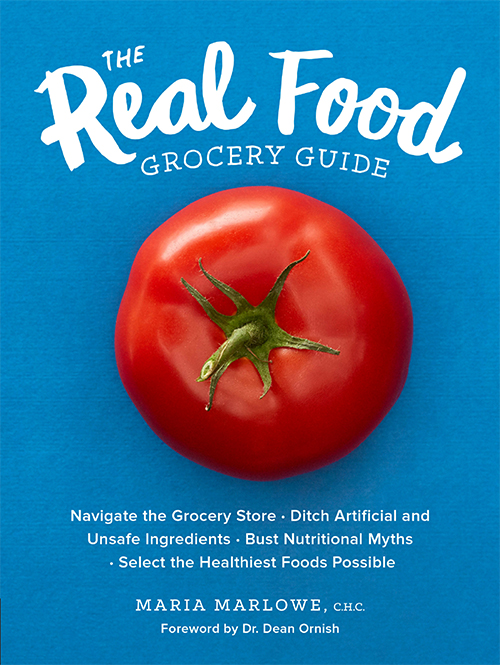
LIVING LIFE TO THE FULLEST
And finally, a focus on fun and happiness is the next frontier of wellness. After all, the whole point of improving our health is so that we can live and enjoy our life to the fullest. It is easy to turn wellness activities into a stress-inducing competition or cause for self-criticism when you can’t seem to master your headstand in yoga or give in to the French fries. But these thoughts are the antithesis of wellness, and we must release them if we are to be truly well.
Happiness starts from within, with an attitude of gratitude. Developing a daily practice of acknowledging the things you are grateful for, whether in your head or on paper, trains you to look for the positive instead of the negative continually. A quick and straightforward exercise with profound effects.
What is more, maintaining a child-like spirit and thirst for adventure will do much to improve your mood, mental, and even physical health. Make time to dance and sing and laugh. These were considered medicine before the rise of pharmaceuticals. Throughout Africa, ritual, song, and dance have been used for centuries to work through trauma. And as we all know, laughter has quantifiable positive physiologic benefits.
It is not enough to rely solely on food and physical fitness; we must also pay attention to our mental and spiritual health because it is all connected. The future of wellness will be less about following a prescribed checklist of wellness activities and more about remembering how to be human.
Maria Marlowe divides her time between New York City and Dubai. You can find her online at mariamarlowe.com or Instagram @ mariamarlowe.





